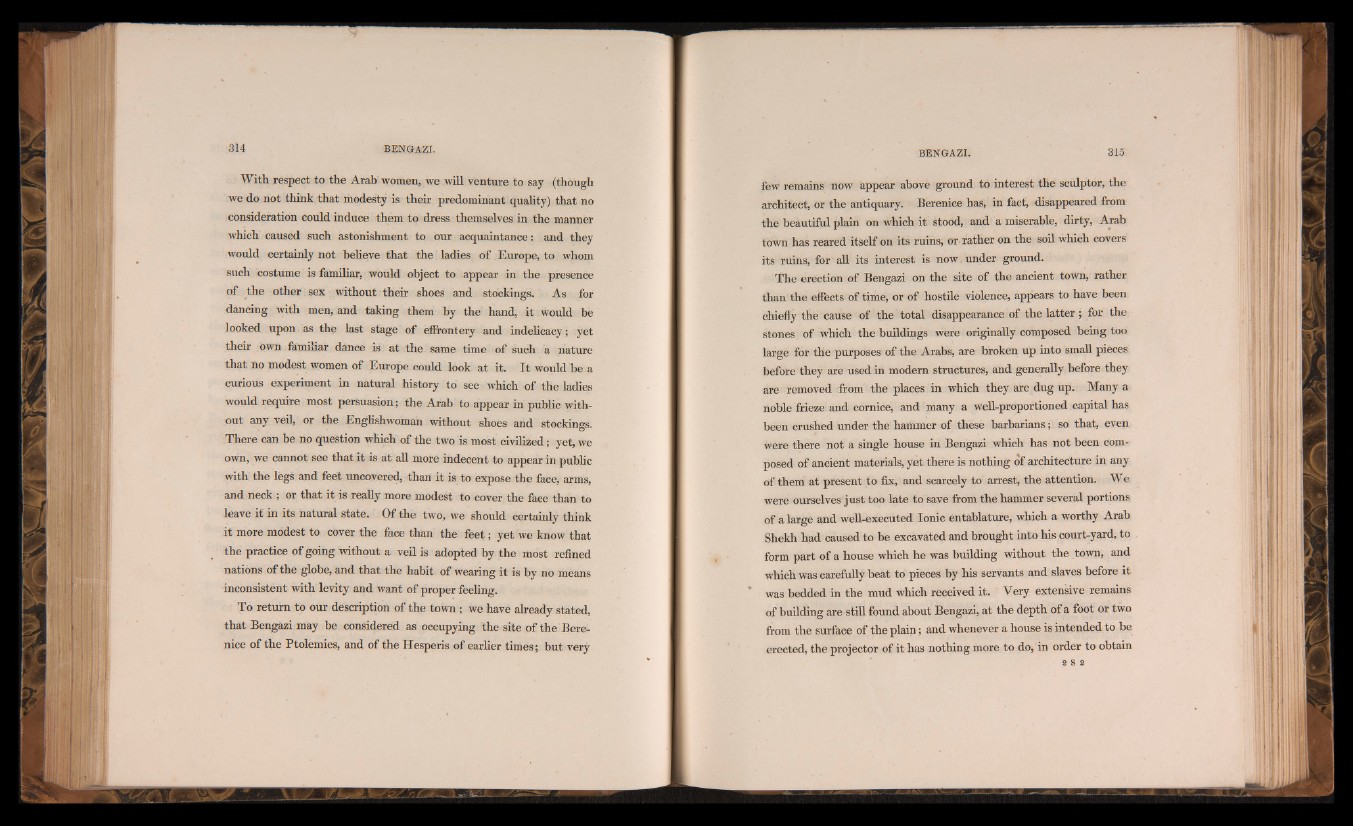
With respect to the Arab women, we will venture to say (though
we do not think that modesty is their predominant quality) that no
consideration could induce them to dress themselves in the manner
which caused such astonishment to bur acquaintance : and they
would certainly not believe that the ladies of Europe, to whom
such costume is familiar, would object to appear in the presence
of the other sex without their shoes and stockings. As for
dancing with men, and taking them by the hand, it would be
looked upon as the last stage of effrontery and indelicacy; yet
their own familiar dance is at the same time of such a nature
that no modest women of Europe could look at it. I t would be a
curious experiment in natural history to see which of the ladies
would require most persuasion; the Arab to appear in public without
any veil, or the Englishwoman without shoes and stockings.
There can be no question which of the two is most civilized; .yet, we
own, we cannot see that it is at all more indecent to appear in public
with the legs and feet uncovered, than it is to expose the face, arms,
and neck ; or that it is really more modest to cover the face th a n to
leave it in its natural state. Of the two, we should certainly think
it more modest to cover the face than the fe et; yet we know that
the practice of going without a veil is adopted by the most refined
nations of the globe, and that the habit of wearing it is by no means
inconsistent with levity and want of proper feeling.
To return to our description of the town ; we have already stated,
that Bengazi may be considered as occupying the site of the Berenice
of the Ptolemies, and of the Hesperis of earlier times; but very
few remains now appear above ground to interest the sculptor, the
architect, or the antiquary. Berenice has, in fact, disappeared from
the beautiful plain on which it stood, and a miserable, dirty, Arab
town has reared itself on its ruins, or rather on the soil which covers
its ruins, for'all its interest is now.under ground.
The erection of Bengazi on the site of the ancient town, rather
than the effects of time, or of hostile violence, appears to have been
chiefly the cause of the total disappearance of the latte r; for the
stones of which the buildings were originally composed being too
large for the purposes of the Arabs, are broken up into small pieces
before they are used in modern structures, and generally before they
are removed from the places in which they are dug up. Many a
noble frieze and cornice, and many a well-proportioned capital has
been crushed under the hammer of these barbarians; so that, even
were there not a single house in Bengazi which has not been composed
of ancient materials, yet there is nothing of architecture in any
of them at present to fix, and scarcely to arrest, the attention. We
were ourselves just too late to save from the hammer several portions
of a large and well-executed Ionic entablature, which a worthy Arab
Shekh had caused to be excavated and brought into his court-yard, to
form part of a house which he was building without the town, and
which was carefully beat to pieces by his servants and slaves before it
was bedded in the mud which received it. Very extensive remains
of building are still found about Bengazi, at the depth of a foot or two
from the surface of the plain; and whenever a house is intended to be
erected, the projector of it has nothing more to do, in order to obtain